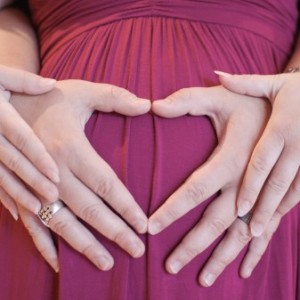Many women suffer from anemia in pregnancy due to a 50% increase in blood volume. During pregnancy, your body needs significantly more iron to make enough hemoglobin for you and your baby. Your iron needs go up from 18 mg/day to 27mg/day when pregnant. Anemia can make you feel tired and weak, have shortness of breath, or have trouble concentrating which—especially during pregnancy—is not ideal.
Most health care providers diagnose pregnant women with anemia if their hemoglobin levels drop below 12g/dL. At this point your doctor may suggest an increase in iron-rich foods or may prescribe a supplement. If hemoglobin stores are severely low, a blood transfusion may be necessary. If hemoglobin stores do not increase sufficiently by the end of the pregnancy there may be risk of low birth rate or stillbirth, and it may cause excessive blood loss for mom during birth. Anemia has also been linked to postpartum depression.
Tips for Increasing Iron With Diet and Supplements
Iron-Rich Foods
There are many foods that are high in iron and folate. Consuming these foods regularly will help to increase your body’s iron stores, allowing you to make more hemoglobin:
- Meats: beef, pork, poultry, and lamb.
- Fortified cereals, breads, and oatmeal
- Beans: soybeans, kidney beans, black beans, lentils, etc.
- Dark Leafy greens: kale, spinach, chard, collards
- Tofu
- Dried fruit: figs, raisins, apricots
- Enriched pastas and grains
- Other veggies including: broccoli, beets, baked potato with the skin, and Brussels sprouts
Iron Supplements
Most prenatal supplements do contain a fair amount of iron. However, you may want to consider taking extra iron supplements if you have been anemic before, had severe morning sickness with vomiting, had very close pregnancies, or are carrying multiples.
Iron supplements can often be constipating. If you are diagnosed with iron-deficiency anemia, we can help you determine which supplement is right for you.
Helpful Iron-Increasing Tips
- When eating these iron-rich foods, make sure to also eat foods high in Vitamin C as well. Vitamin C helps the body absorb more iron. For example, try a dinner of grilled chicken, steamed broccoli, and brown rice. Broccoli is high in Vitamin C and your iron will come from the chicken. Or a breakfast of iron-fortified toast with orange juice.
- Try to avoid foods high in Calcium when consuming iron-rich foods or supplements. Calcium can decrease the absorption of iron in the body.
- Use a cast-iron skillet when cooking. Some of the iron in the skillet will transfer to your food.
- Avoid drinking coffee or tea (even decaf) with meals. The tannins they contain decrease the absorption of iron.
- Come into Lifestyle Medical Center for a personalized pregnancy consultation with a Registered Dietitian to help increase your pregnancy nutrition knowledge and the health of you and your baby.

